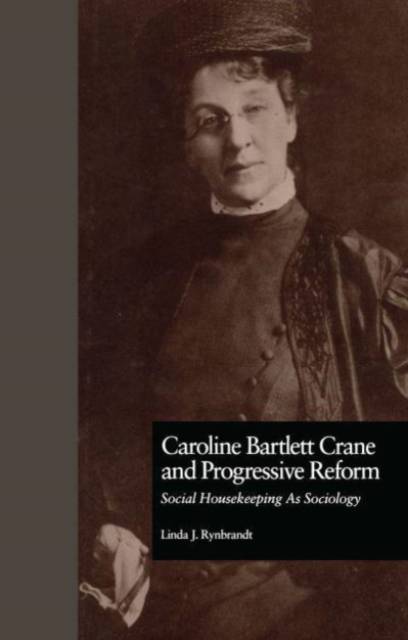
- Afhalen na 1 uur in een winkel met voorraad
- Gratis thuislevering in België vanaf € 30
- Ruim aanbod met 7 miljoen producten
- Afhalen na 1 uur in een winkel met voorraad
- Gratis thuislevering in België vanaf € 30
- Ruim aanbod met 7 miljoen producten
Zoeken
€ 44,95
+ 89 punten
Omschrijving
Caroline Bartlett Crane's robust vision of women's work and her national impact as America's Housekeeper highlights the gendered nature of being a sociologist, a woman, and doing sociology. Contemporary sociologists are disconnected from their female predecessors. Like Sisyphus, each generation of sociologists is condemned to push the boulder of women's knowledge and experience back to the top of the patriarchal mountain of the discipline. Although women in sociology like Caroline Bartlett Crane, the subject of this book, have been brilliant social analysts and powerful public figures for over a century, their work is repeatedly ignored, forgotten, and lost. I hope that we can stop rolling this boulder up the mountain of male ignorance and control and see the world and new horizon from the mountaintop. Linda Rynbrandt's book helps anchor that boulder by analyzing sociology from a new location. Rynbrandt's perspective examines sociology through the work and life of Caroline Bartlett Crane, historical analysis, the political economy of the home, the gendered landscape of the Progressive Era, and feminist thought. Rynbrandt initiates this series on Women and Sociological Theory with an exciting subject and an innovative perspective connecting the past, present, and future.
Specificaties
Betrokkenen
- Auteur(s):
- Uitgeverij:
Inhoud
- Aantal bladzijden:
- 192
- Taal:
- Engels
- Reeks:
- Reeksnummer:
- nr. 1177
Eigenschappen
- Productcode (EAN):
- 9781138969889
- Verschijningsdatum:
- 30/01/2024
- Uitvoering:
- Paperback
- Formaat:
- Trade paperback (VS)
- Afmetingen:
- 138 mm x 216 mm
- Gewicht:
- 452 g

Alleen bij Standaard Boekhandel
+ 89 punten op je klantenkaart van Standaard Boekhandel
Beoordelingen
We publiceren alleen reviews die voldoen aan de voorwaarden voor reviews. Bekijk onze voorwaarden voor reviews.











